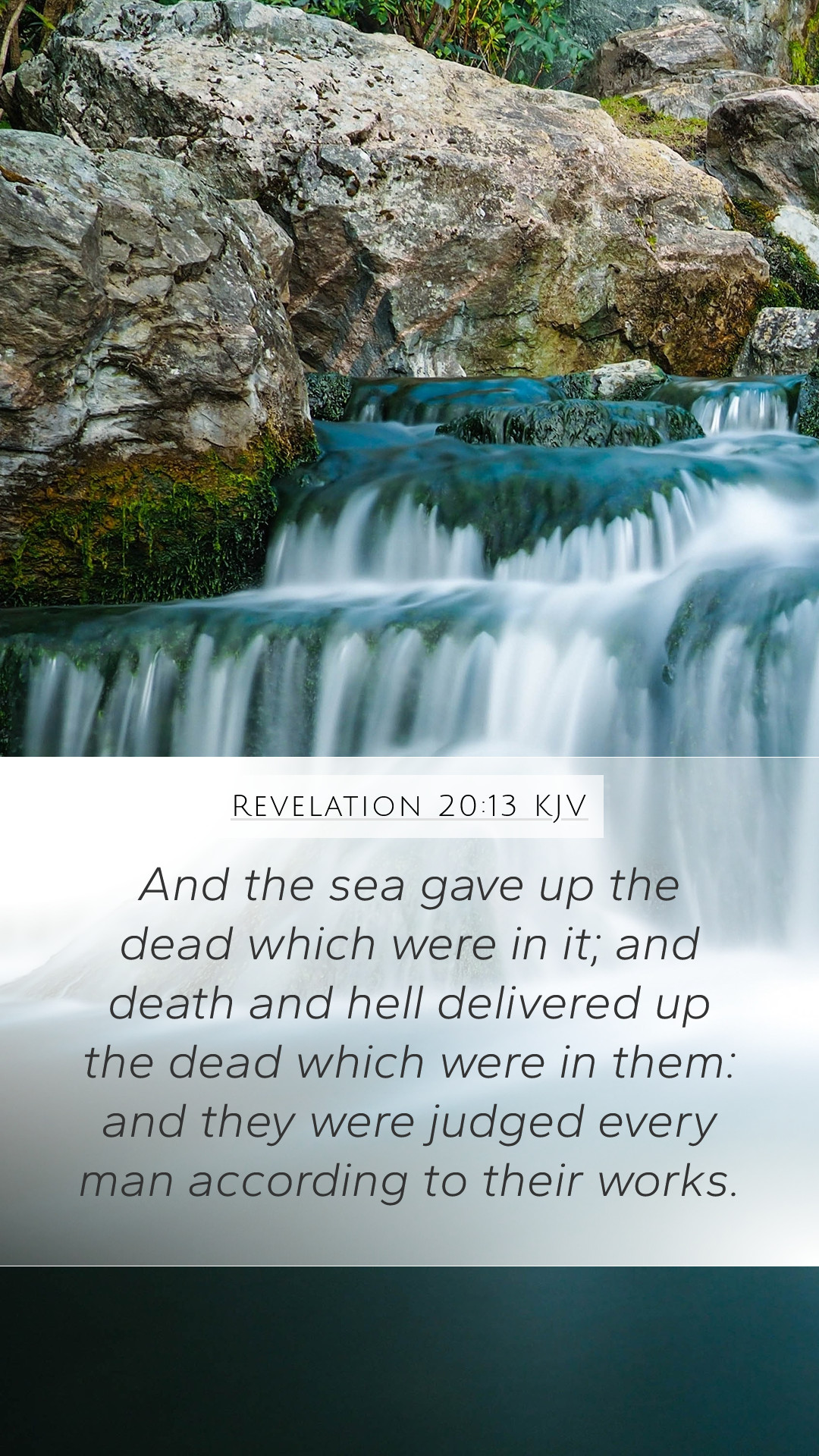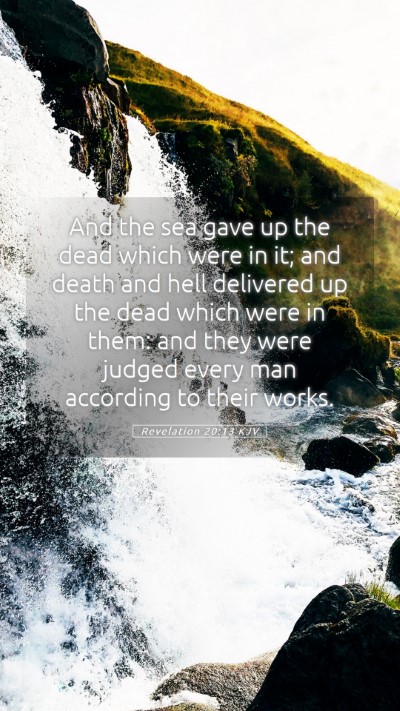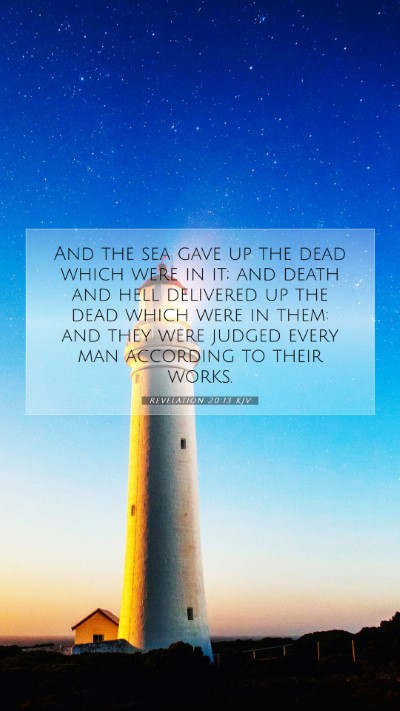Understanding Revelation 20:13
Revelation 20:13 reads: "And the sea gave up the dead that were in it; and death and hell delivered up the dead which were in them: and they were judged every man according to their works." This pivotal verse speaks to the final judgment and the resurrection of the dead, providing profound implications for understanding eschatology and human accountability.
Bible Verse Meanings
The meaning of this Bible verse can be approached through various lenses, merging insights from respected public domain commentaries, including those by Matthew Henry, Albert Barnes, and Adam Clarke.
Verse Analysis and Interpretations
Matthew Henry's Commentary
Matthew Henry, a renowned biblical commentator, highlights that this verse emphasizes the omnipotence of God in raising the dead for judgment. The sea, death, and hell are depicted as yielding their dead, symbolizing no escape from divine justice. Every individual, regardless of their earthly status or location, will face the judgment of their actions.
Albert Barnes' Commentary
Albert Barnes reflects on the scope of this resurrection, indicating that it includes all who have died throughout history. He aligns the idea that God's judgment will not overlook any sin nor will it absolve anyone from accountability. In this context, the phrase "according to their works" underscores the principle of divine justice where deeds matter in the afterlife.
Adam Clarke's Commentary
Adam Clarke emphasizes the symbolism in the passage. The sea represents the vastness of humanity, while death and hell signify the final state of the wicked. Clarke augments this interpretation by suggesting that the resurrection implies a restoration for those who believed, and a reckoning for those who rejected God.
Key Themes in Revelation 20:13
- The Resurrection of the Dead: This event portrays the culmination of human history, affirming that no one remains in the realm of death permanently.
- Divine Judgment: The judgment is comprehensive, signifying that all deeds will be evaluated, thus reinforcing the moral and ethical dimensions of human actions.
- Universal Scope: The mention of the sea, death, and hell illustrates that every person, regardless of their life circumstances, will face the same fate of accountability.
Biblical Exegesis and Implications
This verse serves as a critical juncture in the biblical narrative concerning life after death. It forms a foundation for discussions in Bible study groups and online Bible study resources seeking to deepen understanding of eschatological themes.
Cross References
- 1 Thessalonians 4:16: Discusses the resurrection of the dead in Christ.
- John 5:28-29: States that all will rise from the dead and be judged.
- Daniel 12:2: Prophecies about the resurrection of both the righteous and the wicked.
Application of Revelation 20:13
Understanding this verse profoundly impacts how believers integrate its teachings into their daily lives. Recognizing the reality of divine judgment encourages individuals to reflect on their choices, prompting steps toward moral living and accountability. It also reinforces the significance of evangelism as a means of guiding others toward salvation before the day of reckoning.
Conclusion
In conclusion, Revelation 20:13 serves as a sobering reminder of God's ultimate authority over life and death, and His capacity to enact justice. This verse invites deeper engagement with Bible study insights and sheds light on the necessity of being prepared for the final judgment.


